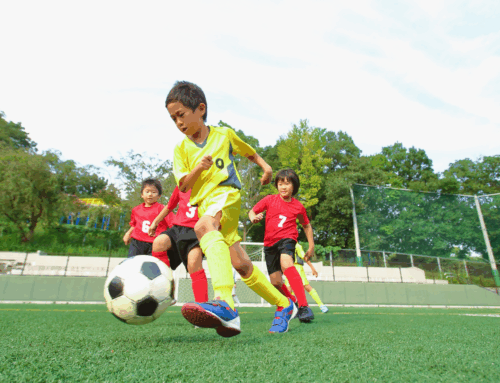Get our exclusive report. Download the iSport360 Club Switching Report Here – For Club Admins, Rec Leaders and Coaches.
How to Practice With Purpose
We often measure success by game outcomes, trophies, and highlight-reel moments. But what truly separates exceptional athletes from average ones isn’t natural talent alone—it’s how they approach practice. The concept of “practicing with purpose” might be the most undervalued aspect of youth athletic development today, yet it’s the foundation upon which all sustainable success is built.
What Does “Practicing with Purpose” Actually Mean?
Practicing with purpose is the difference between going through the motions and truly engaging in deliberate improvement. It means approaching each training session with clear intentions, specific goals, and complete mental presence.
When young athletes practice with purpose, they’re not just showing up physically—they’re showing up mentally. They understand the “why” behind each drill, the specific skill being developed, and how it connects to game performance. They’re asking questions, seeking feedback, and making real-time adjustments.
Purpose-driven practice transforms routine into growth. It converts mundane repetition into meaningful development that compounds over time.
Garbage Reps, Garbage Results
As Arnold Schwarzenegger famously stated, “The last three or four reps is what makes the muscle grow. This area of pain divides a champion from someone who is not a champion.” While Arnold was talking about bodybuilding, this principle applies perfectly to youth sports.
When young athletes rush through drills without focus, perform techniques with sloppy form, or mentally check out during practice, they’re accumulating what coaches call “garbage reps.” These are repetitions that not only fail to improve performance but often reinforce bad habits that become increasingly difficult to break later.
Each repetition is a neural pathway being strengthened in a young athlete’s brain. Intentional, focused repetitions build excellence. Distracted, careless repetitions build mediocrity. It’s that simple.
Consider the basketball player who casually shoots 100 free throws with poor form versus the player who mindfully shoots 25 with perfect technique, making corrections after each attempt. The second player will progress faster despite fewer repetitions because each rep had purpose.
Do The Small Things Well
Excellence in youth sports isn’t built through occasional spectacular performances but through consistent attention to details that others overlook. The best young athletes understand that mastering fundamentals creates the foundation for advanced skills.
Practicing with purpose means dedicating time to the unglamorous aspects of your sport—the footwork, the positioning, the basic mechanics that casual observers might never notice but that coaches and scouts immediately recognize as markers of quality training.
In baseball, it might mean taking an extra 15 minutes to perfect the grip on a fastball before moving to more complex pitches. In soccer, it could be focusing on receiving the ball properly before attempting fancy footwork. In swimming, it’s refining the catch phase of your stroke before worrying about race strategy.
When young athletes commit to doing small things well, they develop confidence that transfers to bigger moments. The fundamentals become automatic, freeing mental bandwidth for tactical decision-making under pressure.
Start Your Engine: The Mental Approach to Practice
The quality of practice begins before the first whistle blows. Elite youth athletes develop pre-practice routines that prepare their minds and bodies for focused training.
Starting your engine means:
- Arriving early to mentally transition from school or other activities
- Setting specific goals for that day’s practice session
- Visualizing successful execution of skills to be practiced
- Performing proper warm-ups that prepare both body and mind
Young athletes who properly “start their engines” get more from each practice because they’re fully present from the beginning. They don’t waste the first 15 minutes getting into the right mindset.
Implementing Purpose-Driven Practice
Parents and coaches can help youth athletes practice with purpose by:
- Encouraging pre-practice goal-setting (even just one focus area)
- Asking specific questions after practice about what they learned, not just how it went
- Valuing effort and focus over outcomes
- Creating an environment where questions and feedback are welcomed
- Modeling purposeful preparation in their own lives
The transition to purpose-driven practice won’t happen overnight. It requires consistent reinforcement and patience. But over time, young athletes will internalize this approach, experiencing both improved performance and greater enjoyment of their sport.
The athlete who practices with purpose doesn’t just become better at their sport—they develop a mindset that transfers to academics, future careers, and life challenges. In this way, practicing with purpose in youth sports becomes a foundation for success far beyond the playing field.
About the Author:
Amy Masters is a proud sports mom, seasoned coach, and dedicated club administrator with over a decade of experience in youth athletics. She launched Jr Lions Field Hockey in Hunterdon County, growing it from just 40 players in its first season to over 150 by year three. Fueled by the growing passion and competitive spirit of local athletes, she went on to found Omega Field Hockey Club, now serving players across New Jersey and Pennsylvania.
A former collegiate athlete herself, Amy played field hockey at Lock Haven University, where her love for the game truly took root. Off the field (and somehow still finding time), she leads marketing for iSport360 and co-edits the Youth Sports Survival Guide—the largest youth sports newsletter in the world.
Learn more or request a demo of our youth sports software that is helping teams improve communication, organization and player development.
May 15, 2025





